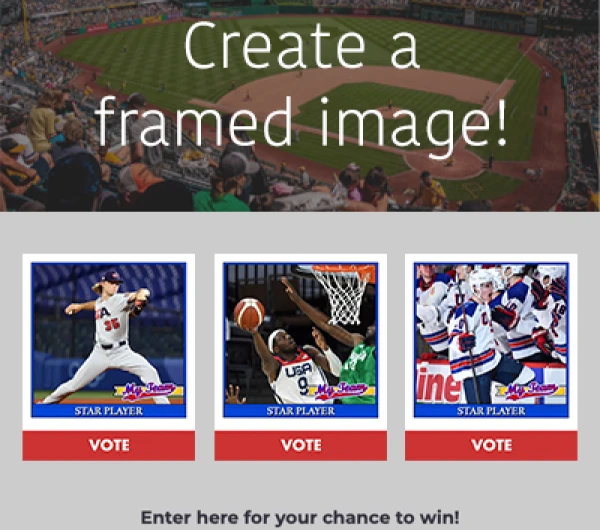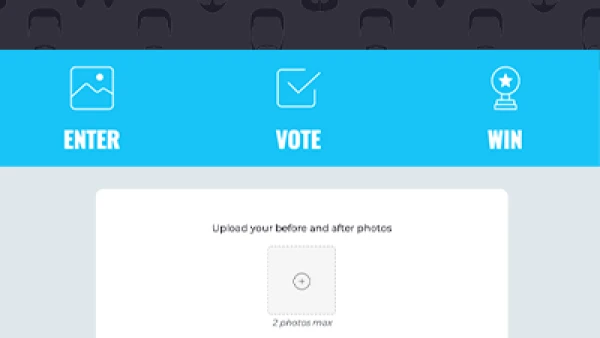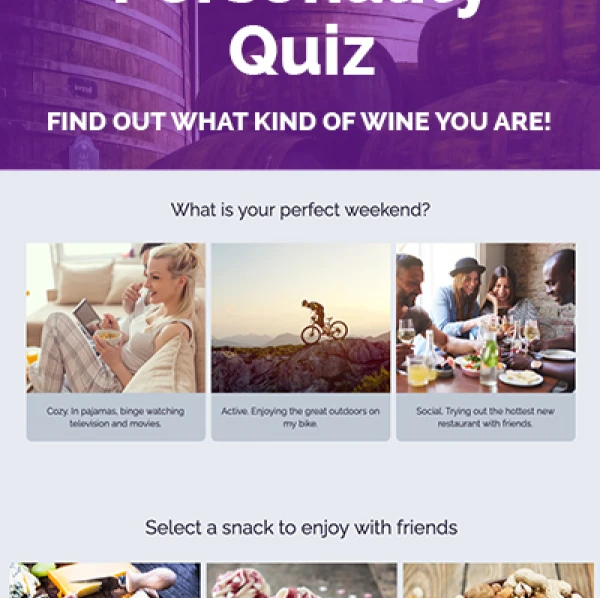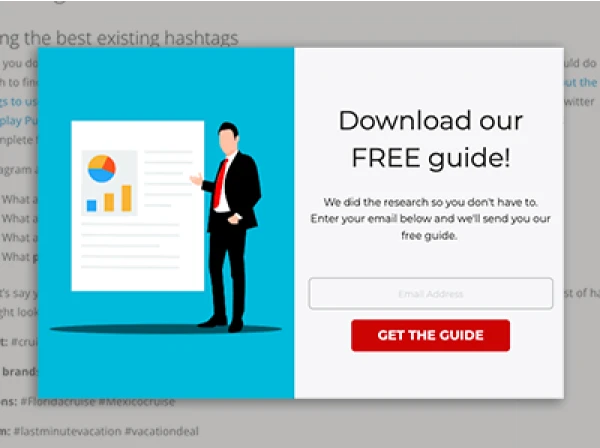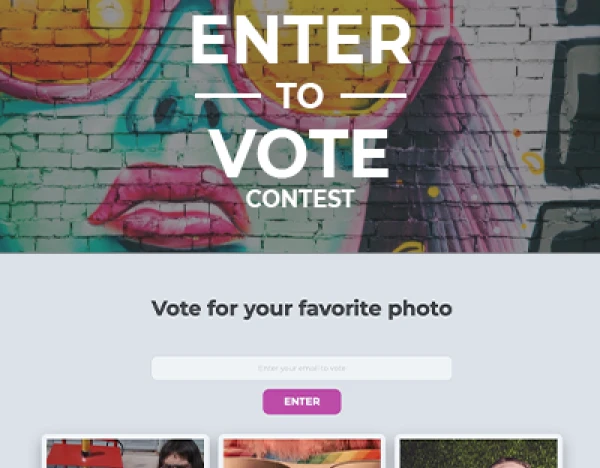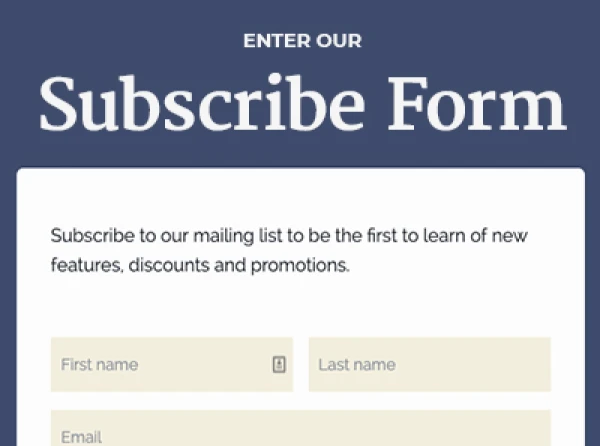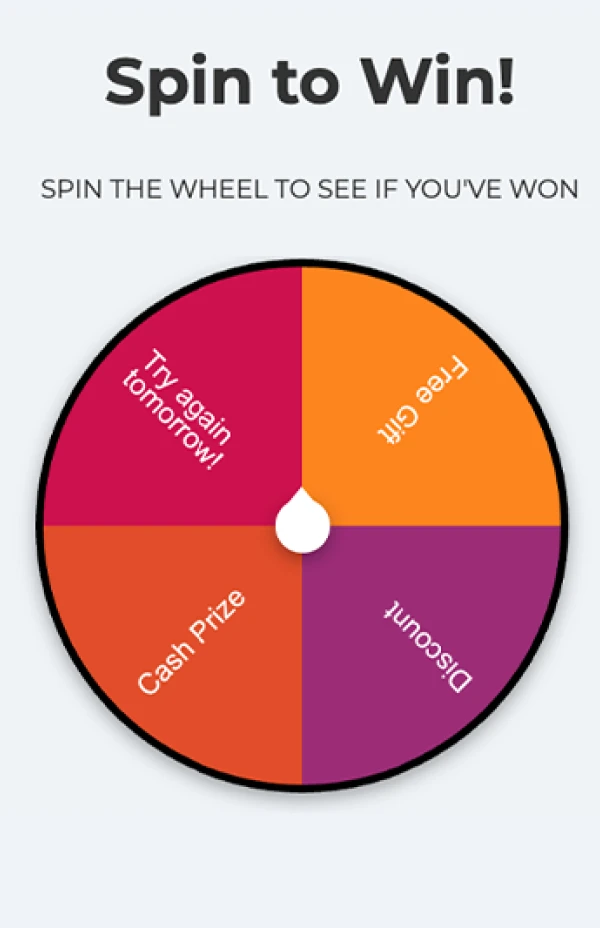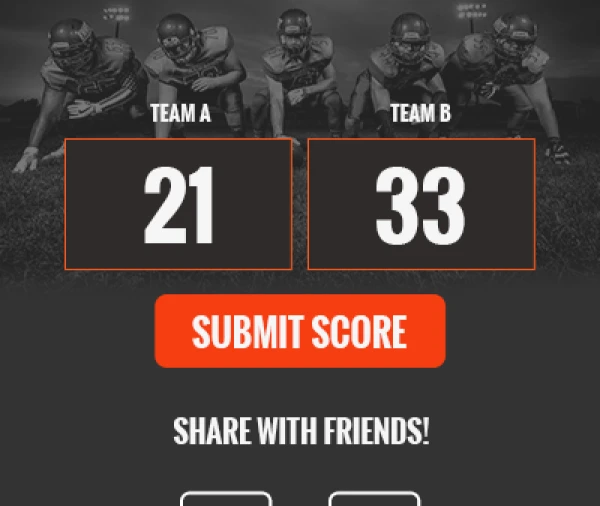If you run (or work for) an advertising or marketing agency, we think you're going to love our new free ebook: The Next Agency. The ebook is 30-easy-to-read pages. Here’s the story in a nutshell…
- The first chapter explains how the old agency worked—Mad-Men era stuff. (Bartender, make mine a double.)
- The second chapter discusses the radical shifts digital imposed on the agency world in the 1980s and 1990s.
- The chapters that follow deliver the beef:
- The things the new breed of agencies must focus on to thrive
- How The Next Agency works smarter and creates conversations with buyers and customers
- How The Next Agency builds a stronger team
- How The Next Agency digs into data to collect insights and respond effectively
![Digital Agency Services: What’s the Future Look Like? [Free eBook]](https://cdn.prod.website-files.com/651d4bf52da9370577a0c9ab/6537bd9698942d745fa45bd8_blog-tech-ebook-next-agency.png)
Download The Next Agency eBook
Download instantly, no form required!
The ebook also features important data, infographics and insights from some of the best in the business. Meet the man who wrote “The Blueprint”: Paul Roetzer.In 2004, Paul realized the marketing agency model had been broken for years. The following year, he started his own agency, PR 20/20. In 2012, he shared his insights in 200+ pages of lessons for digital marketing agencies in his amazing book, The Marketing Agency Blueprint.HubSpot co-founder Dharmesh Shah, wrote, “The Marketing Agency Blueprint is a practical, insider’s guide that should be required reading for anyone building the next-generation marketing services firm.“ I agree. I read the book while researching The Next Agency and folded many of Paul’s observations and ideas into the ebook. Then I had the pleasure of interviewing Paul. I asked Paul about a number of themes developed in The Next Agency:
- Do agencies distance themselves from customer contact?
- Why is the billable hours model inefficient?
- How does a modern brand evaluate the performance of their agency?
- How can the digital marketing agency work smarter?
- How can the digital marketing agency create conversations?
- How can the digital marketing agency hire more effectively?
- Is mining marketing data the future for marketing agencies?
You’ll enjoy our 21-minute conversation. (A transcript of the interviews follow, if you’d rather read it.)

Barry: Paul is the CEO and Founder of PR 20/20. This is a digital agency that has been around for some time. He is a very important voice in the conversation about the maturation and evolution of digital marketing, thanks to the book The Marketing Agency Blueprint. Let’s get started here. In the foreword of your book, Brian Halligan, the co-founder of HubSpot, talks about how agencies have failed to acknowledge shifts in consumer behavior. He says they distance themselves from contact with the customer. But he wrote that originally when he wrote his book Inbound Marketing, and he wrote that for your book a few years back. But now it’s 2018, is that still true? Is it possible that agencies fail to acknowledge shifts in consumer behavior?

Paul: Yeah. I started writing that manuscript in April of 2011. At the time, and Brian was talking about just the Mad-Men era, as I know you’ve talked about in the eBook, is this idea that they just sat there and did their creative and people would consume and enjoy their creative. They didn’t have to actually get out and understand and interact with people. No doubt that that has continued to evolve.
I do think that brands generally today understand the need to interact, whether it’s through interactive content or social media or wherever the vehicle may be, they know they have to get out and connect with the consumer."
I spend a lot of my time today talking about artificial intelligence and that’s starting to evolve even faster, and there is a challenge now where brands need to realize what consumers are looking for, and in a lot of cases that’s deep personalization. And that’s really hard to do.Even a lot of the core tech that you and I and other marketers have been using for the last five years, like marketing automation, CRM, those tools on their own don’t make that personalization happen. The human, the marketer has to be doing it, and things like artificial intelligence are continually accelerating towards this more intelligent future.So brands generally are doing a better job, but it’s getting harder and harder because brands like Amazon and Apple and Facebook are changing the way consumers expect to be interacted with, and they almost anticipate and expect that personalized level of experience.

Barry: Let’s go back to the agency model, and The Next Agency is the eBook topic of the day I suppose, which is an eBook written by me in collaboration with ShortStack, that I couldn’t have done without you, because so much of what I learned and said comes from TheMarketing Agency Blueprint.So you come out of the gate in your introduction, and I come out of the gate in my eBook by quoting you saying, “Agencies motivated to change will shift away from the inefficient legacy system of billable hours and move to more results-driven, value-based models.”What’s wrong with billable hours? You’ve got to be offending a fair amount of agencies there.

Paul: Yeah, the first chapter of the book is called “Eliminate Billable Hours.” It’s funny, I did anticipate a lot of kickback from the agency world when the book first came out, and it’s done pretty well, it’s been read pretty widely, and I have never in five plus years now received a single negative email or comment about the need to eliminate billable hours, as crazy as that may sound. And I know still 30-40% of the agency world uses them, but I don’t think anybody in the agency world really argues that they aren’t the most client-centric thing to do.What I mean by that is, the industry was built on billable hours because it’s easy to execute from a financial perspective for the agency. It’s like you do an hour of work, you charge for an hour of work. The problem is that it’s all based on outputs. So we did five hours of work, it was this whole list of things, and here you go, pay us our five hours. There’s nothing outcome-based in that. It’s not like we actually created value for you, it’s we did a bunch of work, we don’t know if it’s going to actually help you grow or not, but it doesn’t matter.This is what I did the first five years in my life in the agency world. I would just send invoices with a block of text, like we did all this work, it was 10 hours, 50 hours, 100 hours, and send us a check. And the client was constantly, well, I don’t really understand what you actually did; I don’t know how this created any value for us. So that was part of my problem with the model.And the other is: What is the value of an hour? It’s a really hard thing to quantify. The example I give in the book, which is a good tangible example, if I’m going to write a press release and I’m doing it by the hour, and I have an account person write it that is highly efficient and very qualified and has done it a hundred times in their life, they’re going to write that thing fast.So let’s say they write it at $150 an hour, three hours, done. Client pays $450. Let’s say in option B, a junior account person writes it who has only written a few releases, and the first draft is terrible, so then a senior person edits that, gives it back to the junior person, back to the senior person, eventually to the client. At the end of the day the client still gets the same product, but if the second option took 10 hours at $150 bucks an hour, it’s now $1,500. If the budget is there, they’re going to pay it regardless, and they may not even question it, but is the one version really worth that much more than the first version? No, absolutely not. And you can’t use logic to debate that, but that’s how the model works.In the 80s or 90s there weren’t that many distractions, you’re a writer by trade, you sat down and wrote, you didn’t have Instagram and Facebook and Twitter and text messaging and all these things constantly popping up. Now an agency person’s hour, almost never do they actually work for an hour straight. So if you’re billing for an hour, there’s a pretty good chance you stopped 5 to 10 times during that hour to check something. That’s my thing, an hour is not worth what it used to be worth, and it wasn’t really worth what they were charging for them when the agency models billed doing it. So I just argue it’s a very agency-centric approach, it’s what’s easy for the agency to do and charge, and a lot of their financial models, their compensation models are built on it, so it’s really hard to flip the switch and change.

Barry: How does a client evaluate the performance of their agency now?

Paul: It’s got to be based on metrics. For us, anytime we go into a relationship, we’ll get into performance data. If they’re looking for growing their top of the funnel, like getting more traffic to the site, more subscribers, more social reach, whatever that metric may be, you look at what the data is today and you look at ways to improve it. It might be a lead gen goal, whether it’s interactive or downloadable, that content is designed to start getting people into that lead funnel and then nurturing them through.So you have to have key performance indicators that say we want increased traffic 20%, we want to grow lead volume 10% a quarter, we want to help increase conversion rates on leads to sales, or maybe it’s like reduce our customers leaving. That’s what agencies should be doing. They should know what the business goals are, know what the marketing goals are, that then support that business goal, and they should know how the services they’re providing help achieve those goals.Even if you’re not directly responsible for a lead volume count, if you’re writing the content that’s generating leads, you should know that, because you may actually be leaving value on the table, you may just be charging for ten hours of work and in reality your work may have created a hundred leads that turn into a million dollars in business. So agencies need to have insight into that, they have to know what the outcome of their work is so they know the true value of what they’re doing for somebody.

Barry: That question alone summarizes the difference between the era of the 50s, 60s, 70s, and now, it’s not like they were guilty then, they didn’t have the data we have, and it’s interesting.So agencies that aren’t billing by the hour, or maybe even if they are billing by the hour, they need to get more efficient with those hours, like you said an hour doesn’t always equal an hour. I write in a small section of my eBook and you write in a large part of your book that the next agency needs to work smarter. How do they do that?

Paul: Technology. You can certainly develop processes internally to make sure that employees are working as efficiently as possible. So if they’re going to do a project for the first time, there’s a template that they can follow or a process, a step-by-step process to get them to… so little things like that.But technology certainly continues to advance and making us more and more efficient. Marketing automation would be an example. We were HubSpot’s first partner back in ‘07, early ‘08, and we integrated that technology and started automating a lot of the process we would previously do manually.Now we’re in the era where artificial intelligence is actually starting to do a lot of the manual work that humans today have to do. An example would be email subject line writing, there’s a software you can buy to write email subject lines more effectively than humans; A/B testing a landing page, done by machines, humans don’t even have to figure out what to do with it; media buying, all of these things that we as humans, writers, marketers do.
A lot of new technology is being developed to make marketing more intelligent, and that’s going to be the big driver in the next three to five years to make marketing smarter and agencies more efficient."

Barry: Yeah, it’s frightening and encouraging at the same time. Harking back briefly to what Halligan said, he said agencies distance themselves from contact with the customer. In my eBook I talked about the need to create conversations.It’s hard to imagine that too many digital agencies aren’t trotting upon social media as part of their services, or at least consulting with their clients on social media. So tell me if you agree that creating conversation is a part of the equation, and how a digital agency might help their clients do such.

Paul: Certainly the interactive content, and anything you can do to engage them beyond just getting up to the site and reading content. Any types of quizzes, interactive tools… We use online chat as a huge piece of this, so we advise every client especially in the B2B space to have an online chat tool.There’s no excuse not to have online chat. We found with some of our sites that don’t even get a ton of traffic, you’ll get people popping in and we will pop a message says hey “Welcome to site, how can we help you?”They’ll ask questions, they’ll tell you what they’re looking for while they’re there, and you could have the best content strategy in the world and you may not think of all the reasons someone would be on the site or what they would be looking for.Then obviously you have social media and being able to gauge it. The more you’re out there listening the more you’re out there actually engaging with them, instead of just publishing and promoting what you’re doing, the greater chance you have to actually connect with the consumer and grow a brand.

Barry: ShortStack’s business doesn’t exclude some of the things you said but it includes contests and giveaways, which are smoking hot on Instagram and Facebook especially, but not out of bounds on Twitter and some of the other networks.What do you think about those? Is that a great way to start a conversation? They often claim that it’s a great way to collect user-generated content. What are your thoughts?

Paul: For sure. Anything you can do to engage an audience and create value for them. And that’s really what it’s all about. Certainly at the end of the day the brand has a goal of moving someone to an action beyond just completing a quiz or a contest. They want to actually sell them something at some point, but so much of marketing today is about value creation and engagement and entertainment, and those sorts of things especially in social media channels where people are wanting to be entertained, wanting to get something of value, they can be a great way to connect with people.

Barry: Today if you’re in the digital agency business, as you are, you hire differently, you look for talents in a different way than you did when things were "bucketized" and segmentized: get me a writer, get me an analyst, get me a media buyer.Do today’s agencies look for different talents than they did in eras gone by?

Paul: A lot of agencies do still hire for specialization, writers, SEO people, demand gen, social.We talk about hybrids a lot in the book, and by hybrid we mean these cross-discipline people. So we actually tend to hire people who are writers by trade, we hire a lot out of journalism school, communication backgrounds, because we see writing as being the core competency of marketing today, not just in the agency world, you need to be able to write well.So we often hire people who are really strong writers and then we train them in the other areas. Like they have to be social media savvy a lot of times, they have to be technology savvy, they have to learn new technologies and apply them, because a lot of what they do is try HubSpot or Drift or whatever that tool may be, they have to be comfortable getting in and learning something and figuring out how to use it for the client.We do have people who specialize, but I tend to look at it almost as when you go to a liberal arts college and you have a major and you focus a lot of your time and energy on developing that area, that would be the specialization piece, but you’re also learning all these other areas that you can apply to whatever you choose to do.So that’s the talent we tend to develop ... strong writers, but we want them to have a diverse background, and then over time they may tend to focus more in one service area but a lot of times they are actually these hybrids.
Instantly download The Next Agency eBook
Download Your Free Copy. No form required!
About the author
Barry Feldman is a content consultant for ShortStack. He is the author of several books and contributes to many of the web’s top marketing sites. Barry was named one of 25 Social Media Marketing Experts You Need to Know by LinkedIn.
Recent posts
Go back to blogGet marketing tips straight to your inbox
Launch an irresistible giveaway. Get started for free.
Join 630.000+ marketers that are boosting engagement and sales.
